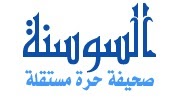RE: The Right To Destroy Jewish History
SUBTOPIC: Direct of the Posting
⁜→ surada, et al,
BLUF: Sometimes we get confused when we star the splitting of hairs. I think this is one of those cases.
(COMMENT)(LIMITED to MY way of THINKING)
Akkadains are people who spoke the now extinct "East Semitic" language of about 5000 years ago. Today, we are not even sure what the language sounded like, although in print, we have a limited understanding.
This is a bit different from those desert-dwelling pastoral nomads people who spoke Arabic (Arabians) which still exist today. Arabian (people who speak Arabic) still has meaning today.
Akkadians did not evolve from Arabs. They are descriptions of people who spoke a specific language. And today, it makes even less sense to hang a definition on people by language. It is not uncommon, when traveling in the Middle East • North African (MENA) Region who have spoken multiple languages their entire lives. There is a very large percentage of Israelis who speak Hebrew, Arabic, and English in near equal fluency. But they are collectively known as Israelis. Just like Arab-Palestinians who speak multiple languages are something other than Israeli.
Today, a language is no longer a valid means of ethnic or cultural difference.
Deborah (fl. 12th century BC) Prophet and heroine of the Hebrew scriptures. Her story is told in the book of Judges. With her general, Barak, she is credited with defeating the Canaanite armies led by Sisera. The Israelite victory over the Canaanites, which was aided by a thunderstorm that Israel saw as the coming of God from Mount Sinai, was celebrated in the “Song of Deborah” (Judges 5), possibly the earliest portion of the Bible.
And let us not get entangled with ancient "Canaanites." That will lead to arguments that would take an Indiana Jones to break up.
Rewriting history is a political game that Academicians play in dissertations and manuscripts for publication. New ideas and alternatives are right up there with criticisms and fault findings. The only thing worse is Colonels bucking for their first star and journalist working for that big breaking story that will get them a Pulitzer Prize. What really happened, has nothing to do with truth.
Just My Thought,

Most Respectfully,
R
(REFERENCES)
Arab • Any member of the ARABIC-speaking peoples native to the Middle East and North Africa. Before the spread of Islam in the 630s, the term referred to the largely nomadic Semitic peoples of the ARABIAN PENINSULA; it came to apply to Arabic-speaking peoples from Africa’s Mauritanian and Moroccan coasts east to Iraq and the Arabian Peninsula and south to The Sudan after their acceptance of Islam. Traditionally, some Arabs are desert-dwelling pastoral nomads (see BEDOUIN), whereas others live by oases and in small, isolated farming villages. While most Arabs are Muslims, some are Christian. The term has also been used in a political sense by Arab nationalists to describe a greater sociolinguistic or ethnic ideal (“the Arab nation”). See also PAN-ARABISM.
SOURCE: Encyclopædia Britannica © 2006 Encyclopædia Britannica, Inc. pp. 92
Fertile Crescent Region, MIDDLE EAST • The term describes a crescent-shaped area of arable land, probably more agriculturally productive in antiquity than it is today. Historically the area stretched from the southeastern
coast of the Mediterranean Sea around the Syrian Desert north of the ARABIAN PENINSULA to the PERSIAN GULF; in general, it often includes the NILE RIVER valley as well. Sedentary agricultural settlements in the Fertile Crescent can be dated to c. 8000 BC. It was the scene of the struggles and migrations of some of the earliest known peoples, including
Sumerians, Assyrians, Akkadians, various Semitic groups, Babylonians, and Phoenicians.
SOURCE: Encyclopædia Britannica © 2006 Encyclopædia Britannica, Inc. pp 668
Hebrew language SEMITIC LANGUAGE that is both a sacred language of Judaism and a modern vernacular in Israel. Like ARAMAIC, to which it is closely related,
Hebrew has a documented history of nearly 3,000 years. The earliest fully attested stage of the language is Biblical Hebrew: the earlier parts (“Standard Biblical Hebrew”) date before 500 BC and include even older poetic passages; the later parts (“Late Biblical Hebrew”) were composed c. 500–200 BC. Post-Biblical Hebrew, variously termed Rabbinic or Mishnaic Hebrew (see MISHNA), is characterized by an early period when Hebrew was still probably to some degree a vernacular and a later period, after c. AD 200, when Aramaic became the everyday speech of Jews in the Middle East. The 6th and 7th centuries marked a transition to Medieval Hebrew. The resurrection of Hebrew as a vernacular is closely linked with the 18th-century HASKALA movement and 20th-century ZIONISM. Contemporary Israeli Hebrew is spoken by about five million people in Israel and abroad. See also ASHKENAZI; SEPHARDI; HEBREW ALPHABET.
SOURCE: © 2006 Encyclopædia Britannica, Inc. pp 668
Jew Any person whose religion is JUDAISM. In a wider sense, the term refers to any member of a worldwide ethnic and cultural group
descended from the ancient Hebrews who traditionally practiced the Jewish religion. The Hebrew term Yehudi, translated as Judaeus in Latin and Jew in English, originally referred to a member of the tribe of JUDAH. In Jewish tradition, any child born of a Jewish mother is considered a Jew; in REFORM JUDAISM a child is considered a Jew if either parent is Jewish.
SOURCE: Encyclopædia Britannica © 2006 Encyclopædia Britannica, Inc. pp 854
Mesopotamia • Region between the TIGRIS and EUPHRATES rivers in the Middle East, constituting the greater part of modern Iraq. The region’s location and fertility gave rise to settlements from c. 10,000 BC, and it became the cradle of some of the world’s earliest civilizations and the birthplace of writing. It was first settled by the Sumerians, who were
succeeded by the Akkadians and later by the Babylonians. Successive peoples came to dominate the region until the rise of the Persian Achaemenian dynasty in the 6th century BC. The Achaemenids were overthrown by Alexander the Great in the early 4th century BC, and Mesopotamia was ruled by the SELEUCID DYNASTY from c. 312 BC until the mid-2nd century BC, when it became part of the Parthian empire. In the 7th century AD the
region was conquered by
Muslim Arabs.
SOURCE: Encyclopædia Britannica © 2006 Encyclopædia Britannica, Inc. pp 1242

elderofziyon.blogspot.com



